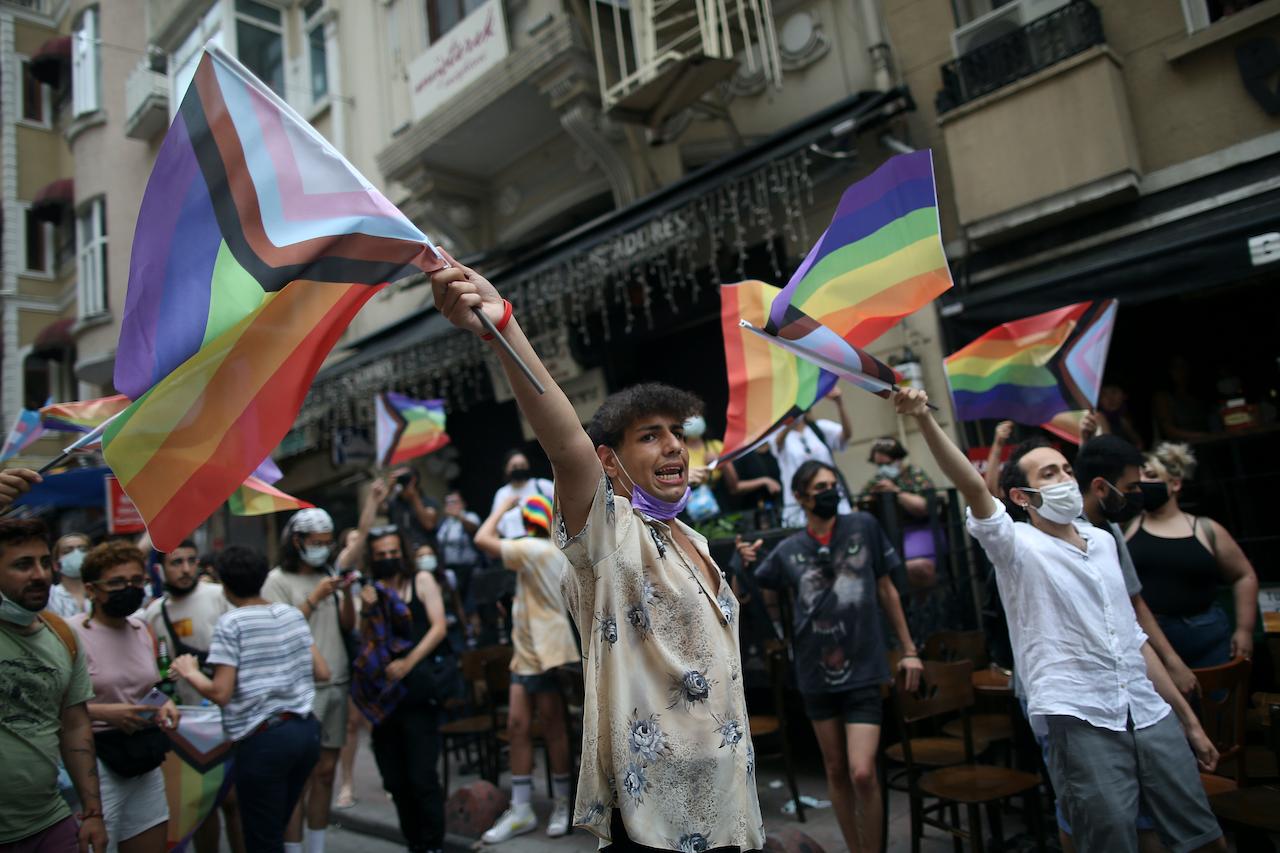Transgender Turks fear more open hostility from authorities
Advocates say transgender people in Turkey face increasing violence and discrimination, including denial of jobs, housing, health care and education.
Just In
Gay and transgender advocates say crackdowns on pride events and other curbs on free speech and assembly reflect the government’s heavier hand, which includes recent open denunciations of the LGBTI community.
President Tayyip Erdogan’s government has dismissed such claims of discrimination and says police are upholding the law against “unlawful” protests.
In other instances, the government has denied the existence of LGBTI individuals, or said the concept was imported from the West, and poses a threat to Turkish and Muslim family values.
Transgender Europe says 54 transgender people were killed in Turkey from 2008 through September 2020, the highest rate in Europe.
Unreported cases means the number is likely higher, it said, adding that transgender people face discrimination including denial of jobs, housing, healthcare and education.
Last week, as international pride month ended, Turkish authorities including police in riot gear detained an estimated 100 people taking part in parades and demonstrations across the country.
Police used tear gas to disperse some of the hundreds who had gathered. The government said the police were responding to vandalism.
Such events have been banned in recent years, though in the past thousands took part in the main Istanbul Pride parade.
EU concerns over human rights have hindered Turkey’s accession process, which has been languishing for years after the bloc informally suspended membership talks.
For the third straight year in 2020, Turkey ranked second lowest in the “Rainbow Index” that measures respect for LGBTI human rights in 49 European countries, according to the International Lesbian, Gay, Bisexual, Trans and Intersex Association (ILGA-Europe).
In February, amid student and faculty protests over the naming of an Istanbul university rector, Erdogan and other officials seized on the campus display of an image that combined Islamic imagery and rainbow flags.
Interior Minister Suleyman Soylu labelled the students “LGBT deviants” and Erdogan praised his Islamist-rooted AK Party’s youth wing for “not being LGBT youth”.
Last month, Council of Europe Commissioner for Human Rights Dunja Mijatovic sent a letter to Turkey’s interior and justice ministers expressing concern about rising homophobic narratives by some officials, and called on them to reverse course and protect LGBTI rights.
Student Cayan Hakiki joked transgenders prefer the “B for Barbie” pronoun, but says they accept using the pronouns “they” and “them” for genderless singular in English.
Hakiki trimmed their finger nails and scrubbed off the polish last week in order to take Turkish university entrance exams without being hassled.
“I didn’t want any problems at the entrance,” Hakiki, 23, who was born male but identifies as trans or queer, told Reuters at home in the capital Ankara.
“We are subject to all kinds of violence from the moment we begin to exist as an LGBTI+ person, whether from people on the street, the government, or the police.”
Hakiki, who wants to study performance arts management in Istanbul told Reuters, “I want to stay in this country and continue our struggle for rights.”
They are part of the Ankara-based Pink Life transgender awareness group, and is/are adamant that instances of discrimination are multiplying.
“If there’s going to be a change in this country, it will be led by the LGBTI+ movement. It is the government who is afraid of this movement, and not the other way around,” they said.
Subscribe to our newsletter
To be updated with all the latest news and analyses daily.
